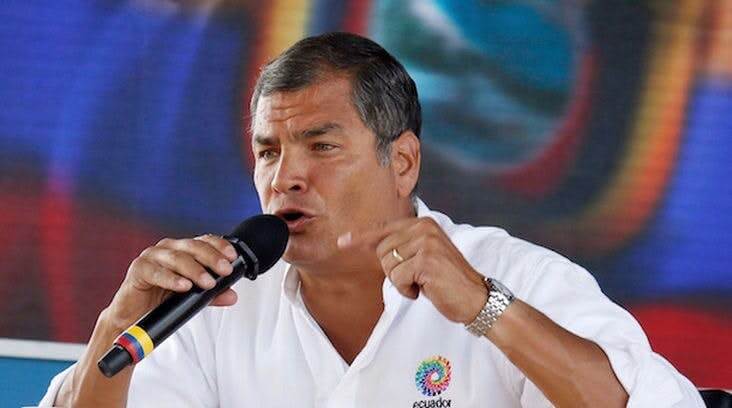These attacks began just days after the nonprofit launched Censuracom.ec, a website designed to expose the government’s crackdown on independent media during 2015. The attacks come less than two months after an investigation revealed a large-scale hacking campaign against independent media and political opposition that — the evidence suggests — was sponsored by several South American governments, including President Rafael Correa’s.
“Fundamedios staff has withstood years of public insults and smear campaignsdirected against them — many led by President Correa himself during his Saturday television broadcasts,” said Thor Halvorssen, president of HRF. “These cyber-attacks seek to remove Fundamedios’s valuable work from the public record for the benefit of President Correa. The situation for independent media outlets, journalists, and activists in Ecuador remains extremely precarious,” he added.
On January 22, 2016, Fundamedios launched Censuracom.ec, a website that compiles the Ecuadorean government’s attacks on freedom of expression in 2015, which Fundamedios considers “the worst year” in recent history. According to Fundamedios, the website was attacked two days after it went live, shutting it down for close to 24 hours. Both the Fundamedios and Censuracom.ec websites are now operational, but they remain plagued by bugs and glitches. One year ago, Fundamedios faced the same type of DDoS attack. On that occasion, the attack was conducted a few hours after the organization released its 2014 Annual Report of Freedom of Speech Violations in Ecuador.
In December 2015, HRF denounced the disinformation campaigns, death threats, and malware and phishing attacks presumably sponsored by the governments of Ecuador, Venezuela, Argentina, and Brazil. HRF’s allegations came after an independent investigation by Citizen Lab, a research group at the University of Toronto, revealed that “a number of journalists, activists, politicians, and public figures in Latin America have been targeted by a large-scale hacking campaign since 2008.” The evidence presented by the report strongly suggests that the perpetrators — a group of hackers under the name of Packrat — were “sponsored by a state actor or actors,” and points to government agencies in Argentina, Brazil, Ecuador, and Venezuela, as the co-conspirators behind the cybercriminals and the “ultimate recipient of the information collected.”
“HRF has repeatedly called on the Ecuadorean government to adopt ‘guarantees of non-repetition’ to ensure Fundamedios’s ability to operate without interference. Yet, the government has failed to comply with its international legal obligations,” said Javier El-Hage, chief legal officer of HRF. “Once again, we urge Ecuador, as an active member of the Inter-American human rights system, to adopt the necessary guarantees of non-repetition to prevent further attacks against Fundamedios and its staff,” he added.
Human Rights Foundation (HRF) is a nonpartisan nonprofit organization that promotes and protects human rights globally, with a focus on closed societies. HRF’s International Council includes human rights advocates George Ayittey, Vladimir Bukovsky, Palden Gyatso, Garry Kasparov, Mutabar Tadjibaeva, Elie Wiesel, and Harry Wu.
Contact: Noemi Gonzalo-Bilbao, (212) 246-8486, [email protected]
